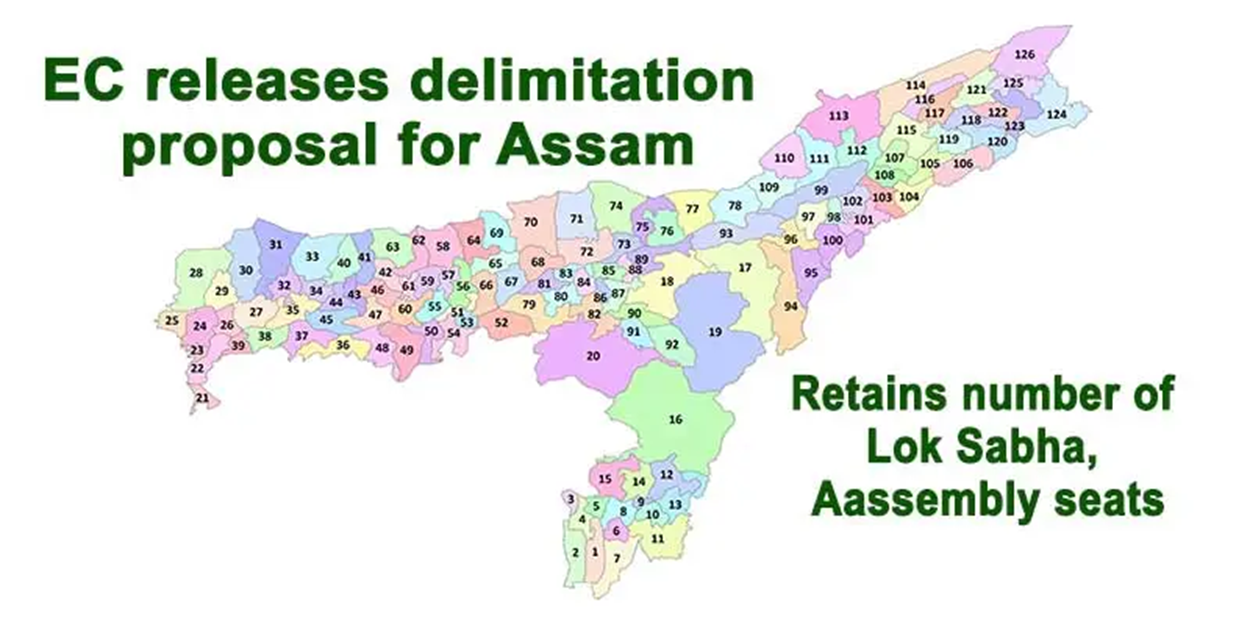Free Courses Sale ends Soon, Get It Now


Free Courses Sale ends Soon, Get It Now



Copyright infringement not intended
Context: The Election Commission has released the draft delimitation papers for Assam, which will affect the representation of the state in the Parliament and the Legislative Assembly. The delimitation exercise is based on the Census data of 2001, as per the Delimitation Act of 2002.
Details
The draft papers are open for public objections and suggestions till July 31, 2023. The Election Commission will consider the feedback and publish the final delimitation order by August 31, 2023. The new delimitation order will come into effect from the next general elections in Assam.
Delimitation
Constitutional provisions related to delimitation:
Significance
Delimitation Commission
Challenges and Controversies
Way Forward
Must-Read Articles:
Delimitation Commission: https://www.iasgyan.in/daily-current-affairs/delimitation-commission-6
|
PRACTICE QUESTION Q. What is the main function of the Delimitation Commission? 1. To allocate seats in the Lok Sabha and state assemblies among different states 2. To draw the boundaries of parliamentary and assembly constituencies 3. To determine the reservation of seats for Scheduled Castes and Scheduled Tribes 4. To fix the number of voters in each constituency How many of the above statements is/are correct? A) Only 1 B) Only 2 C) Only 3 D) All Answer: A Explanation: The Delimitation Commission is a constitutional body that is set up every 10 years after each census to redraw the boundaries of parliamentary and assembly constituencies based on population changes and other factors. |
© 2024 iasgyan. All right reserved